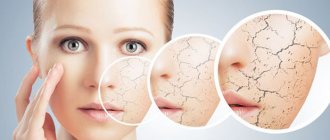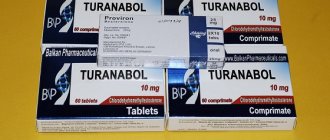Hormones. Everyone has heard of them, but few people understand their role in our body. To put it very simply, hormones are our regulatory system. They turn on and off the synthesis of substances and give commands to our organs, commanding when to grow and when to become. They serve as a “start” button and a “stop” button. And also a smooth regulator of the power of all processes occurring in the body. For example, a lack of the hormone estrogen in women as a result of severe weight loss leads to problems with the menstrual cycle.
Watch the video with answers to questions from participants in the webinar “Dyshormonal Disorders” (144 min)
Menopause, estrogen and body weight
Menopause causes estrogen levels to decrease
Women's estrogen levels can be low for a variety of reasons. The most common of these is menopause, which occurs when levels of reproductive hormones decline, the ovaries stop producing eggs, and menstruation stops. Many women note that during this period of life they begin to gain excess weight.
In fact, many of the symptoms associated with menopause, including excess weight gain, begin to appear in women during perimenopause.
Perimenopause is the time when a woman's body prepares for menopause.
The most common reason why women begin to gain weight during perimenopause and menopause is a change in estrogen levels. One form of this hormone, called estradiol, decreases significantly around menopause. Estradiol helps the body regulate metabolism and thus affects body weight. Low estradiol levels can lead to obesity.
During the reproductive period of life, women most often observe fat deposits in the upper legs and thighs. However, after menopause they tend to gain weight around the waist and abdomen.
With such excess weight gain, fat tends to accumulate not only in the subcutaneous layers, but also around the internal organs. In medicine, this type of fat accumulation is commonly called vizzeral fat.
Visceral fat can pose a serious danger to the body. It is associated with a number of medical conditions, including the following:
- diabetes;
- stroke;
- heart disease;
- some types of cancer.
But not only changes in estrogen levels can affect excess weight gain in middle-aged and elderly women. They may also gain weight because they are less physically active and have less muscle mass, which means they burn fewer calories throughout the day.
All of these factors can increase the risk of gaining excess weight in women who have gone through or are close to menopause. Moreover, sometimes age-related factors play a more significant role compared to changes in estrogen levels.
This can be confirmed by the results of a study conducted by an international group of scientists in 2012. The experts' findings showed that excess weight does not appear to be associated with changes in hormone levels that occur during menopause.
Testosterone: sexual function and brain function
We generally think of testosterone as a sex hormone, but it is responsible for more than just sexual expression and libido. If you get the Y chromosome from your father, your brain will develop differently in the womb.
There is a huge difference between men and women. Women communicate better, feel language, and are committed to maintaining warm relationships rather than competition. The male brain is wired for ambition and dominance and is less prone to attachment.
However, testosterone is responsible for more than just these basic differences. A lack of testosterone can result in cognitive impairment, Alzheimer's disease and depression. There is also a link between low testosterone in men and chronic pain.
Research is currently underway on the relationship between testosterone levels and pain tolerance. Testosterone is also important for women because it affects their sex drive, muscle development and memory.
Low testosterone levels in men
In men, testosterone levels peak around age 22 and then decline slowly. On average, after age 30, a man loses 10% of his testosterone levels every decade, or 1–2% every year.
Recent research also points to a link between low testosterone and Alzheimer's disease. With a lack of testosterone, blood flows worse to the brain, which causes problems with mental functioning.
It can affect body weight, muscle mass, sex drive, mood and energy. We call this condition male menopause, or andropause.
Common signs of testosterone deficiency in men: decreased libido, poor erection, depression, lack of energy and memory problems.
Low testosterone levels in women
Without enough testosterone, women's sex drive decreases. I have seen many women on the verge of divorce. It often turns out that either they or their husbands have too low testosterone levels, which affects the relationship. I often hear that people blame their spouses for changing and not being the same as before. Yes, people change because the balance of hormones changes. Before getting a divorce and ending 20–30 years of marriage, you should check your health.
Common signs of low testosterone in women include lack of libido, depression and poor memory.
High testosterone levels in men
Those who produce too much of this hormone tend to lose their temper for no reason. Men with excess testosterone rarely marry or remain in stable marriages. They often marry only at a very mature age.
Common signs of high testosterone levels in men include aggressiveness, acne, and extreme competitiveness.
Excess testosterone in women. Some women produce too much testosterone, which is common with polycystic ovarian syndrome (PCOS), like my wife. PCOS can affect weight, skin condition and overall health.
Common signs of excess testosterone in women. Excess weight, irregular periods, acne, oily skin, excessive facial and body hair growth, aggression, high cholesterol, high blood pressure, diabetes.
Balance testosterone. For complete clarity, do two tests - total and free testosterone. New research shows that elevated blood sugar levels (after eating) can lower a man's testosterone levels by as much as 25%. Therefore, if you want to get accurate test results, do not eat for several hours before the test.
There is a simple test: look at your hand and compare the length of the straightened index and ring fingers. If the nameless one is longer, it means that you received a lot of testosterone during intrauterine development. Some say that the size of the ring finger also correlates with the size of the genitals in men.
https://youtu.be/MyrPlyrupV0
Other Causes of Estrogen Imbalance
Menopause is not the only reason why women may have low estrogen levels. Other factors that cause estrogen imbalance include the following.
Polycystic ovary syndrome (PCOS)
PCOS is a condition in which women have multiple cysts on their ovaries and suffer from hormonal imbalance. They may have high levels of testosterone, as well as unbalanced levels of progesterone and estrogen.
Impact on metabolism
The functioning of the gastrointestinal tract and proper metabolism are influenced by the hormone estradiol.
As soon as its level begins to decrease, the intestines, pancreas and stomach can no longer function normally, producing the required amount of enzymes. Due to such problems, weight begins to increase, since fats cannot be broken down into smaller components, tissues do not receive nutrients and vitamins.
At the same time, metabolism in the tissues of other organs is disrupted. They do not receive enough oxygen, and their hemoglobin levels drop. The skin takes on a pale green tint, hair falls out, and nails crumble and break.
Due to the rapid decrease in the level of beneficial estrogen and an increase in harmful estrogen, many women experience problems in blood circulation associated with increased clotting.
Varicose veins, thrombosis, and weakness in blood vessels and arteries may appear. Since bone and muscle tissue are also not saturated with minerals, they begin to lose their strength. Bones become porous, increasing the risk of fractures. Muscles quickly lose cellular mass, being replaced by fat.
What is estrogen?
Estrogen is one of the two main female sex hormones. It affects the sexual development of girls and the menstrual cycle, but, in addition, it performs a number of other important functions, for example:
- helps control blood cholesterol levels;
- ensures bone health;
- protects the brain and maintains a good mood.
Two small glands located in the lower part of the pelvis called ovaries are responsible for producing estrogen. Small amounts of estrogen can be produced by the adrenal glands and adipose tissue.
The three main forms of estrogen are:
- estrone or E1 , which is produced in the body after menopause;
- estradiol or E2 , which is produced in women of reproductive age;
- estriol or E3 , which is produced by the body of pregnant women.
Controlling Estrogen Metabolism with Diet
Too often, people jump straight to hormonal treatment when they can take a step back and try to work on restoring body function. In cases where estrogen dominance has caused serious conditions such as endometriosis, these recommendations will not reverse the disease, but they can definitely make you feel better.
The goal of managing estrogen in the body is to ensure that you are not overeating, eating healthy, not being exposed to foreign estrogens or “xenoestrogens,” and that your body is breaking down estrogens properly. As mentioned, ideally, the body would metabolize estrogen so that you have more protective 2-hydroxyestrone than 16-hydroxyestrone.
Related articles:
- Pueraria mirifica root for women, why and how...
- Adenomyosis - what is it (in accessible language),...
There are things you can do to shift estrogen metabolism toward more 2-hydroxyestrone as a metabolite. Here are some measures you can take:
- Eat more cruciferous vegetables such as broccoli, turnip greens, bok choy, wasabi, Brussels sprouts, cabbage, cauliflower, and other greens that are high in indole-3-carbinol and diindolylmethane (DIM), which help regulate estrogen metabolism.
- Consume more omega-3 fatty acids, which you find in wild-caught fish such as salmon, sardines and cod liver oil, eggs, avocado, yogurt and flaxseed products.
- Eat foods high in vitamin B6, vitamin B12 and folic acid.
- Include flaxseed and fermented soy products in your diet. These foods have been shown to promote 2-hydroxyestrone production, so they may be okay. Grind raw flax seeds for better absorption.
- Control your weight. Exercise. Fat in your body stores excess estrogen, promoting estrogen dominance.
- Try a vegetarian diet, which increases fecal estrogen excretion and decreases blood estrogen levels.
- Consume prebiotic and probiotic foods to help balance the microbiome in your gut, having a major impact on estrogen balance in the rest of your body.
- Reduce stress because it can increase cortisol levels, disrupting the balance of estrogen and progesterone in your body.
- If you eat meat, choose organic, free-range, and dairy products that are hormone-free.
- Try anti-inflammatory herbs such as turmeric (Curcuma longa) and ginger (Zingiber officinale).
- Eat plenty of fiber in your diet, which will reduce the absorption of estrogen in the food you eat and increase the excretion of fecal estrogens.
- Reduce your alcohol intake because alcohol can block estrogen metabolism and will increase estradiol levels in the body.
- Consider supplements that restore estrogen balance, such as DIM (diindolylmethane), maca (Lepidium meyenii), milk thistle (Silybum marianum), passionflower (Passiflora incarnata), rosemary (Rosmarinus officinalis) and alpha lipoic acid.
To develop an individual program for healing the body and correcting estrogen dominance, we invite you to join us for health-coaching.
Make adjustments to your lifestyle
- Avoid xenoestrogens, which can be found in products containing BPA (bisphenol A), PCBs (polychlorinated bisphenols) and phthalates (found in plastics, plasticizers and other products).
- Stay away from hormonal methods of contraception as they are rich in estrogen and will contribute to estrogen/progesterone imbalance.
Final Thoughts
To summarize, we note that if you are diagnosed with a deficiency or excess of estrogen in the body, you do not need to look for products that increase or decrease estrogen, you need to think about establishing proper estrogen metabolism.
Your goal: Eat healthy whole foods and make lifestyle changes so that your body can absorb the estrogen you have in your body in a natural and healthy way. There are things you can do to tip the balance towards improving estrogen metabolism, which will lead to fewer side effects from estrogen dominance. Consume certain foods that have a positive effect on estrogen balance and avoid xenoestrogens and artificial hormones from industrial foods.
Symptoms of Low Estrogen Levels
Low estrogen levels can cause insomnia and night sweats
Symptoms of low estrogen include the following:
- irregular menstrual cycles or absence of menstruation (amenorrhea);
- hot flashes;
- night sweats;
- insomnia;
- vaginal dryness;
- mood swings and anxiety;
- headache;
- dry skin.
If a woman experiences symptoms from the list above, she should tell her doctor about it. A specialist can perform a simple blood test to measure estrogen levels and determine whether a hormonal imbalance is to blame.
Women need to monitor their menstrual cycles, particularly the beginning and end of their cycles, and any other symptoms. Having this information will help your doctor diagnose hormonal problems more quickly.
How do the three types of estrogens affect women's well-being?
There are 3 types of estrogens: estradiol (E2), estrone (E1), estrol (E3). The level of these hormones in the female body depends on the amount of fat deposits, their density, genetic predisposition to obesity, as well as age characteristics. Of course, a woman’s lifestyle, her habits and nutritional system also play an important role in the hormonal background.
Since every year the hormonal balance becomes weaker and more unstable, you simply must monitor your hormone levels so as not to make irreparable mistakes and not gain weight. The consequences may be irreversible.
It is important not to miss the moment when estradiol becomes less and less, and the level of other hormones from the estrogen group fluctuates, and their effect on the body is completely different. Let's explain the issue of the influence of each hormone in more detail so as not to get confused in the information.
How to manage weight gain?
The fight against excess weight, even in cases where it is associated with hormonal imbalance, must begin with proper nutrition and an active lifestyle.
Top diet tips include the following:
- avoiding processed foods;
- daily consumption of large amounts of fruits and vegetables;
- maintaining water balance by consuming large volumes of water;
- avoidance of soda, caffeine and alcohol;
- inclusion in the diet of whole grains, lean meats along with vegetable fats.
An active lifestyle is extremely important for people who are struggling with weight loss caused by low estrogen levels. In addition to cardiovascular exercises such as running, swimming or walking, people should do strength training to build muscle mass and maintain healthy bones.
Treatment
To reduce estrogen levels, hormone therapy is usually used. Patients may be prescribed antiestrogenic drugs and progesterone preparations. To maintain normal hormone levels, the body needs B vitamins (especially B6), magnesium, and zinc.
To normalize estrogen levels it is recommended:
- adjust weight;
- avoid exposure to xenoestrogens (substances that have an estrogenic effect in the body), which are included in some cosmetics, plastics, and contraceptives;
- avoid stressful situations;
- normalize the daily routine, adhere to an adequate work and rest schedule;
- to refuse from bad habits;
- provide adequate physical activity;
- eat right, include foods rich in antioxidants and vitamins in your diet.
In some cases, complex treatment is required, aimed, for example, at normalizing the function of the thyroid gland and other endocrine organs.
What hormones affect a woman’s weight. TOP 10
Losing weight isn't just about eating healthy. It also concerns the maintenance of normal hormones.
Did you know that burning stubborn fat can be even more difficult if your hormones are out of balance?
Hormones control critical reactions and functions such as metabolism, inflammation, menopause, glucose processing, etc. Triggers for imbalanced hormonal balance can be stress, age, genes and poor lifestyle leading to sluggish metabolism, indigestion, uncontrollable hunger, etc. ultimately leads to weight gain. Although women are accustomed to hormones that cause unprogrammed anger, but chronic imbalance will make you prone to all diseases associated with excess weight.
Can the hormone help you lose weight?
It is possible to reduce body weight only if the normal level of estradiol is replenished.
To do this, the patient may be prescribed injections or tablets of hormones that have a positive effect on the ovaries. The drugs replenish the deficiency of essential substances and support the body, returning its functions to normal.
Under the influence of estradiol, cortisol levels drop several times, which ultimately leads to a decrease in adipose tissue deposits. Organs get rid of excess fat, and the figure acquires clearer outlines.
Also, with a normal amount of beneficial estrogen, sleep is normalized and stress levels are reduced, which has a beneficial effect on muscles. They recover well at night, their tone is normalized, the cells do not disintegrate, being replaced by fatty ones.
For best effectiveness, taking estradiol for weight loss should be under the supervision of a doctor after tests and in combination with sports activities.
Estrogen is a natural group of hormones for the female body, which supports the ability to ovulate, become pregnant, give birth to a child and outlines the girl’s body with characteristic features.
Even small fluctuations up or down lead to disruptions in the functioning of a woman’s body, including the appearance of excess weight. Controlling hormonal levels and timely treatment for problems therein is a real opportunity to maintain health, youth and a beautiful figure.
source








